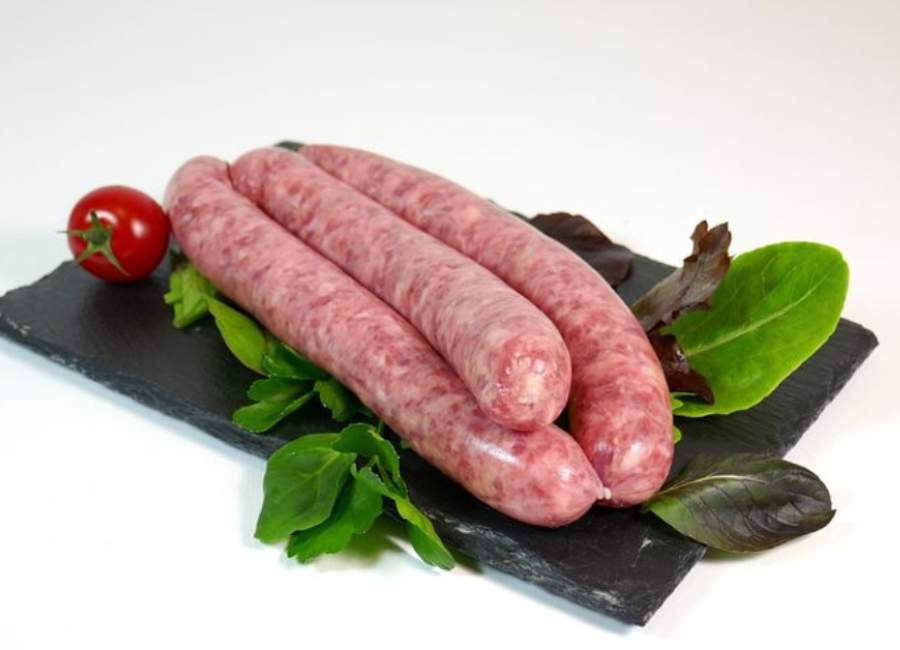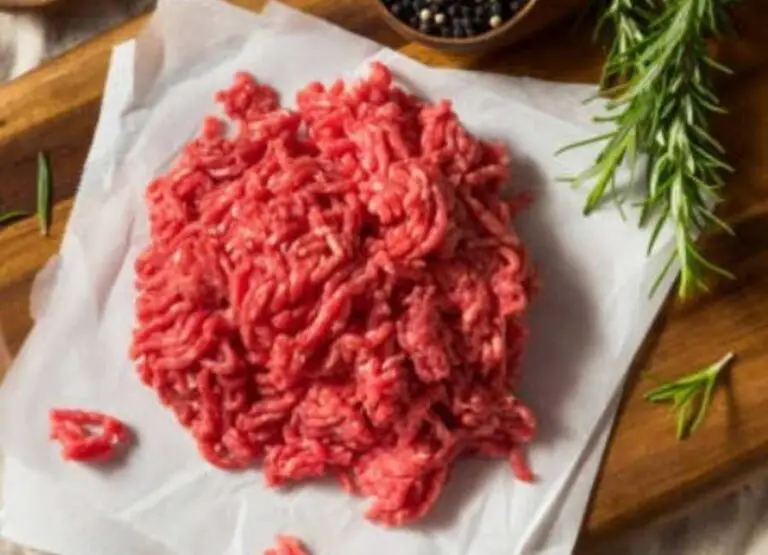Are Sausages Good For You [Useful Hints]
Looking for a tasty and satisfying meal option that’s also good for you? Look no further than sausages!
While some people may think of sausages as an indulgent treat, they can actually be a nutritious part of your diet.
With a range of different types and flavors to choose from, sausages can be a versatile and tasty addition to any meal plan.
In this blog post, we’ll explore the many health benefits of sausages, and share some tips on how to enjoy them as part of a balanced diet.
Are Sausages Good For You
The answer to whether sausages are good for you is not straightforward and depends on various factors such as the type of sausage, how often you consume them, and your overall diet and lifestyle.
Sausages are high in protein, which is beneficial for building and repairing muscles.
They can also be a source of nutrients such as iron, vitamin B12, and zinc.
However, sausages are often high in saturated fat and calories, which can contribute to heart disease and other health problems.
Some sausages also contain nitrites and nitrates, which can convert to cancer-causing compounds in the body.
Additionally, processed meats like sausages have been linked to an increased risk of certain types of cancer.
Overall, while sausages can be a good source of protein, they should be consumed in moderation as part of a balanced and healthy diet.
Reasons sausages are good for you
Here are some common reasons why sausages are good for you:
1. Sausages are a great source of protein
The growth and repair of muscular tissues depend on protein, which is abundant in sausages.
The maintenance of healthy skin, hair, and nails also depends on protein.
A single sausage can have 6–7 grams of protein, which is roughly 10-15% of the daily required amount.
As a result, sausages are a fantastic meal option for athletes, bodybuilders, and anybody else trying to up their protein intake.
2. Sausages are also rich in essential vitamins and minerals
Additionally, sausages are a good source of selenium, iron, zinc, vitamin B12, and other necessary vitamins and minerals.
Iron is required to transport oxygen to the body’s cells, while vitamin B12 is crucial for sustaining healthy nerve and blood cells.
A robust immune system requires zinc, while thyroid function requires selenium.
It might be challenging to obtain enough of these nutrients by diet alone, despite the fact that they are crucial for overall health and well-being.
3. Sausages are a good source of calories
Calories, which give the body the energy it needs for daily tasks, are found in sausages.
A single sausage may have between 100 and 150 calories or 5 to 7% of the daily calorie allowance.
So, for those who need a quick energy boost, like athletes or people with physically demanding jobs, sausages are a great food option.
4. Sausages are easy to prepare and cook
Given their simplicity in both preparation and cooking, sausages are a practical meal choice for those short on time.
They can be baked, fried, or grilled, and they go well with a number of sides including bread, potatoes, or veggies.
Because of this, sausages offer an excellent supper option for singles or busy families looking for a quick and simple lunch.
5. Sausages can be cooked in a variety of ways
Since there are numerous ways to prepare sausages, they are flexible ingredients that can be used in a variety of recipes.
In addition to other recipes, they can be added to soups, stews, casseroles, and pasta dishes.
For individuals who enjoy experimenting with other cuisines, sausages are a terrific ingredient to have on hand.
6. Sausages are a relatively inexpensive meat option
If you’re looking for a cheap method to include meat in your diet, sausages are a good alternative because they are a reasonably priced meat option.
They are frequently offered in quantity, which can down the price per serving even more.
Because of this, sausages are a fantastic option for individuals on a limited budget.
7. Sausages have a long shelf life
Given that they last a long time, sausages are a good option for stockpiling and freezing for later use.
When required, they can be thawed and cooked from frozen after several months of storage.
For those looking to buy in bulk and save time and money, sausages offer a terrific culinary option.
8. Sausages are a popular breakfast food
Popular breakfast items like sausages provide you with a great and substantial start to the day.
They can be used with toast, eggs, and other breakfast foods to make a filling meal.
As a result, sausages are a fantastic breakfast option for people who wish to feel full until noon.
9. Delicious Flavor
All ages enjoy sausages because of their flavorful reputation and widespread appeal.
They are a flexible component that may be used in many various ways because they are available in a number of tastes and varieties, including spicy, sweet, and savory.
This makes sausages an excellent dietary choice for individuals looking to add flavor to their diets.
10. Sausages are a great food option for outdoor cooking
For outdoor cooking, like camping or barbecues, sausages are a fantastic food choice.
They can be prepared over an open flame and serve as everyone’s wonderful and filling supper.
They can also be kept in a chiller before being cooked and are simple to transport.
Tips for making healthy choices when eating sausages
Here are some common tips for making healthy choices when eating sausages:
- Look for lean sausages: Choose sausages that are made with lean meats, such as turkey or chicken, or are labeled as “reduced fat” or “low-fat.” This can help reduce your overall intake of saturated fat.
- Choose sausages with natural flavors: Look for sausages that are made with natural spices and flavors, rather than artificial ingredients. This can help reduce your overall intake of additives and preservatives.
- Check the sodium content: Some sausages can be high in sodium, which can be harmful to people with high blood pressure or heart disease. Look for sausages that are labeled as “reduced sodium” or “low sodium.”
- Watch the portions: Sausages can be high in calories, so it’s important to watch your portion sizes. Stick to one or two sausages per serving, and pair them with plenty of veggies.
- Cook sausages at a lower temperature: Cooking sausages at a lower temperature can help reduce the formation of harmful compounds. Try grilling or baking sausages at a lower temperature, rather than frying them.
- Pair sausages with healthy sides: Instead of serving sausages with high-calorie sides like potato chips or fries, pair them with healthy sides like roasted vegetables or a side salad.
- Read labels carefully: When purchasing sausages, read the labels carefully to make sure you’re choosing a product that fits into your healthy eating plan. Pay attention to the ingredients list as well as the nutrition information.
- Choose sausage substitutes: There are plenty of plant-based sausage substitutes available, which can provide a similar taste and texture without the added saturated fat and sodium.
- Limit your intake: While sausages can certainly be part of a healthy diet, it’s important to consume them in moderation. Try not to make sausages a daily part of your diet, and focus on eating a variety of whole foods to ensure a balanced diet.
Learn more about pork sausages.
Alternatives to traditional sausages
There are several alternatives to traditional sausages that are available in the market today.
Here are some examples:
- Rabbit Sausages: Fresh sausages made from rabbit meat can be a low-fat alternative to traditional sausages. They are also a good source of protein.
- Vegan Sausages: There are many vegan alternatives available for sausages, made from plant-based ingredients such as tofu or seitan. These sausages have become increasingly popular in recent years.
- Andouille Sausage: Andouille is a spicy sausage that is made from smoked pork, originating from Louisiana. It can be a good alternative to traditional sausages for those who prefer a spicier flavor.
- Chicken Sausages: Sausages made from chicken are a leaner alternative to traditional sausages. They are lower in fat and calories and can be a good option for those watching their weight.
- Plant-Based Breakfast Sausages: Many companies now offer plant-based alternatives to traditional breakfast sausages. These sausages are usually made from soy or pea protein and can be a good option for vegetarians or those looking for a meat-free breakfast option.
Learn more about eating raw smoked sausage.
Related questions
Are sausages healthy for you?
Sausages are generally not considered a healthy food choice due to their high calorie, sodium, and fat content.
However, there are healthier alternatives like chicken or turkey sausages. As with any food, moderation is key.
Are sausages bad for your heart?
The high fat and sodium content in some types of sausages can contribute to an increased risk of heart disease.
To promote heart health, it is recommended to limit the consumption of processed meats like sausages.
How many sausages should you eat in a day?
It is recommended to limit the consumption of processed meats like sausages due to their high calorie and sodium content.
As with any food, moderation is key. It is best to consult with a licensed dietitian or healthcare professional for personalized dietary advice.
Can sausages be a part of a healthy diet?
While sausages are generally not considered a healthy food choice, there are healthier alternatives like chicken or turkey sausages.
It is important to consume them in moderation and as part of a balanced diet that includes plenty of fruits, vegetables, whole grains, and lean protein sources.
What are some healthy ways to cook sausages?
Boiling, grilling, and baking are healthier cooking methods compared to frying.
Choose leaner cuts of meat, like chicken or turkey, and avoid using excess oils or sauces for a healthier meal.
Are sausages a good source of protein?
Sausages can be a source of protein, but there are healthier and leaner sources available like chicken, fish, and beans.
Be aware of the high sodium content of many sausage options and choose healthier protein sources to promote overall health and wellness.
Find out some disadvantages of eating too many sausages.
Conclusion
In conclusion, sausages can be a tasty addition to your diet.
However, it’s important to be aware of their high levels of saturated fat and sodium.
If you do choose to indulge in a sausage from time to time, opting for leaner varieties and pairing them with healthier sides can help maintain a balanced and nutritious diet.
Remember, moderation is key, and the occasional sausage won’t derail a healthy lifestyle.


![Do You Flip Meat When Smoking [Answered]](https://foodcreeks.com/wp-content/uploads/2023/02/Do-You-Flip-Meat-When-Smoking-768x555.jpg)

![Can You Freeze Dry Raw Meat [Answered]](https://foodcreeks.com/wp-content/uploads/2023/02/Can-You-Freeze-Dry-Raw-Meat-768x555.jpg)


![How Long Can Smoked Meat Sit Out [Explained]](https://foodcreeks.com/wp-content/uploads/2023/03/How-Long-Can-Smoked-Meat-Sit-Out-768x555.jpg)
